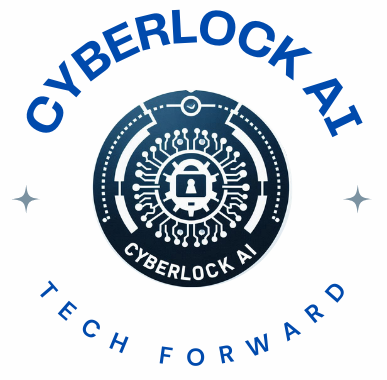When people think of hackers, they often picture someone in a dark room typing blazing fast with streams of random code flashing on their screen. The truth is, the world of hacking is way more accessible and diverse than most people think. Whether you’re curious about cybersecurity or just wondering if there’s a place for you in the tech scene, there’s a lot of old-school thinking about hacking skills that could use a fresh take. I’m going to break down some common myths and show what it really takes to get started in hacking, no matter your background.

What Does It Mean to Be a “Hacker”?
The word “hacker” might sound a bit intimidating or even a little mysterious. But at its core, hacking just means solving problems in creative ways using computers or technology. Hackers might find vulnerabilities in systems, build clever workarounds, or even tinker with gadgets for fun. Some are professionals working on cybersecurity teams to improve defenses, while others enjoy ethical hacking challenges online. Hacking isn’t always about breaking into systems. In fact, a lot of modern hackers spend their time helping organizations find and fix weaknesses to keep everyone safer.
Anyone with curiosity, persistence, and a willingness to learn can explore hacking. It’s less about being a genius and more about thinking differently and constantly picking up new skills. The image of hackers being super geniuses is a leftover from movies, but real-life hackers come from all sorts of backgrounds, including artists, teachers, students, and more. There’s a place for anyone with patience and a problem-solving mindset.
Common Myths: Do You Really Need to Be a Genius at Coding?
Lots of folks believe that you have to be a programming prodigy to even start hacking. The reality is, while coding skills are helpful, they aren’t required for every part of hacking. Here are a few other myths that float around, and what’s actually true:
- “You Need to Be a Programming Expert”: Some areas, like web app security, do use a lot of coding. But a lot of hacking skills involve understanding how systems work, spotting unusual behavior, or using existing tools. Tons of successful hackers learn programming along the way as needed.
- “Only Math Geniuses Can Hack”: Basic math is helpful, and some specialized areas get deep into math. But tons of hackers mostly use logic, pattern recognition, and deduction.
- “All Hackers Are Anti-Social Lone Wolves”: Modern cybersecurity is a team sport. Hackers work together in communities, help each other online, and often share knowledge.
I see a lot of newbies get stuck because they believe these myths and end up never giving themselves a real shot. The main thing that separates successful hackers from others isn’t brainpower. It’s persistence and curiosity. If something catches your attention, start poking at it, and you’ll be surprised how far you can get.
First Steps to Becoming a Hacker (No Experience Needed)
Jumping into the hacking scene is possible for anyone willing to start small and keep learning. There’s a lot you can do before you ever need to write a single line of code. Here are some beginner friendly ways to start your hacking adventure:
- Learn How Computers and Networks Work: Spend some time getting to know the basics — what is an IP address, how does the Internet work, what do firewalls do? Sites like Cybrary and Khan Academy are pretty handy for newbies.
- Play with Online Labs: Platforms like Hack The Box and TryHackMe offer guided labs that walk you through hacking basics in a safe, legal environment. You don’t need lots of technical knowledge to start, since they explain things as you go.
- Use Existing Tools: Tons of hacking tools come with easy instructions and tutorials online. Exploring these helps you see how hackers think and what tools are out there.
- Read Real-World Writeups: Security blogs and writeups help show what actual hackers do when they find a new bug or security hole. It’s like getting a behind-the-scenes look at how problems get solved in the wild.
Start with what you’re interested in, and don’t feel like you need to “know everything” to get hands-on experience. Picking up tidbits here and there leads to bigger discoveries before you know it. There are also plenty of free and low-cost resources, such as YouTube tutorials and online forums, where you can ask questions and learn from more experienced folks. This community-focused learning style is a big part of what makes hacking so accessible.
Common Challenges and How Beginners Can Beat Them
Just about every hacker I know ran into challenges at the start, so it helps to be ready for some bumps. Here are a few that pop up most often, plus how to deal with them:
- Getting Stuck on Technical Jargon: There’s a lot of new vocabulary in hacking. Bookmark glossaries and look things up as you go. Stumbling over new words doesn’t mean you can’t learn hacking. It just takes a bit of patience.
- Imposter Syndrome: It’s normal to feel out of place, especially when you first join online communities where people toss around unfamiliar terms. Most experienced hackers remember being lost at the start. Asking questions helps you learn faster.
- Lack of a Clear Path: There are many different hacking areas — web security, reverse engineering, hardware hacking, and more. You don’t have to pick one right away. Try a few things out and see what grabs your attention.
- Legal Concerns: Doing things the right way keeps you out of trouble. Always practice hacking skills in legal, educational environments like online labs or Capture the Flag competitions.
A great habit is to reach out in online forums, meet others with similar interests, and share your progress. The most valuable tip I have for new hackers is to celebrate small wins. Cracking that first challenge or understanding a tricky concept is proof you’re heading in the right direction. Community support goes a long way toward beating frustration when you hit a tough patch.

Learning to Code the Hacking Way
You can start hacking without any coding skills, but learning some programming will eventually help a lot. Here’s how most hackers I know picked up coding:
- Focus on practical, small projects instead of reading hundreds of pages of textbooks.
- Take apart opensource hacking tools and tweak them.
- Learn scripting languages like Python to automate tiny tasks (for example, writing a script that checks if a website is up).
It’s all about connecting new skills to things you actually want to build or break. There’s no need to master a language before using it. That’s what copy-paste, online forums, and AI helpers are for. Over time, you’ll also pick up troubleshooting skills and creative problem-solving strategies, making each new project a learning experience.
Types of Hacking Anyone Can Explore
There’s way more to hacking than just breaking into systems. Here are some areas you might not have heard of, and what makes each one appealing for beginners:
- Ethical Hacking / Penetration Testing: Basically, finding and reporting security bugs to organizations, often with permission.
- Bug Bounty Programs: Companies pay money to hackers who report real security bugs. Great for those who like treasure hunts and want to learn fast on real-world systems.
- Capture the Flag (CTF) Competitions: Teams (or solo players) solve hacking puzzles for points. It’s a great way to learn new skills quickly while working with others.
- Open Source Security Projects: Contribute to security tool development, documentation, or testing. Beginners can also help improve user documentation or flag bugs, making the community stronger for everyone.
- Social Engineering: Understanding how to trick systems and people (in a safe and legal way) to improve awareness and defenses. This involves learning about human psychology as much as technology.
Trying out different areas makes figuring out your hacking style a lot easier, and keeps things interesting along the way. If you realize one field isn’t for you, it’s easy to switch directions and find something that fits your strengths and interests.
Frequently Asked Questions
People curious about hacking usually have a bunch of questions before they ever write a line of code. Here are a few I hear all the time:
Question: Do I need a computer science degree to be a hacker?
Answer: Not at all. Plenty of hackers are self-taught and come from completely unrelated fields. What helps is a willingness to keep learning outside of a classroom.
Question: Is hacking illegal?
Answer: Hacking itself isn’t illegal, it’s how you do it. Practicing on your own computers, in labs, or in bug bounty programs is legal and encouraged. Breaking into systems you don’t own or have permission to test is where you can get in trouble.
Question: What is the best programming language for hacking?
Answer: Python, Bash scripting, and sometimes JavaScript are a good start. The “best” language is the one that helps you solve the problem you’re working on. You’ll likely end up learning bits and pieces of multiple languages as you go.
Question: Do I need expensive equipment to try hacking?
Answer: Nope. Many free online labs will run on a basic laptop or even in your browser. Some hackers eventually build home labs, but that comes later.
Why Hacking Is for Everyone
The old image of hackers as solitary code prodigies doesn’t match reality. Today’s hackers are diverse, welcoming, and always learning from each other. If you like puzzles, computers, or creative problem-solving, there’s a spot for you. Hacking skills help in all sorts of careers, from IT to law enforcement and beyond.
Getting started in hacking is all about curiosity, practice, and not being afraid to stumble around a bit. Skills grow over time with hands-on experience and community help. Whether you know a little or nothing at all about computers right now, there’s nothing stopping you from giving hacking a try. Your future self might thank you for it.
